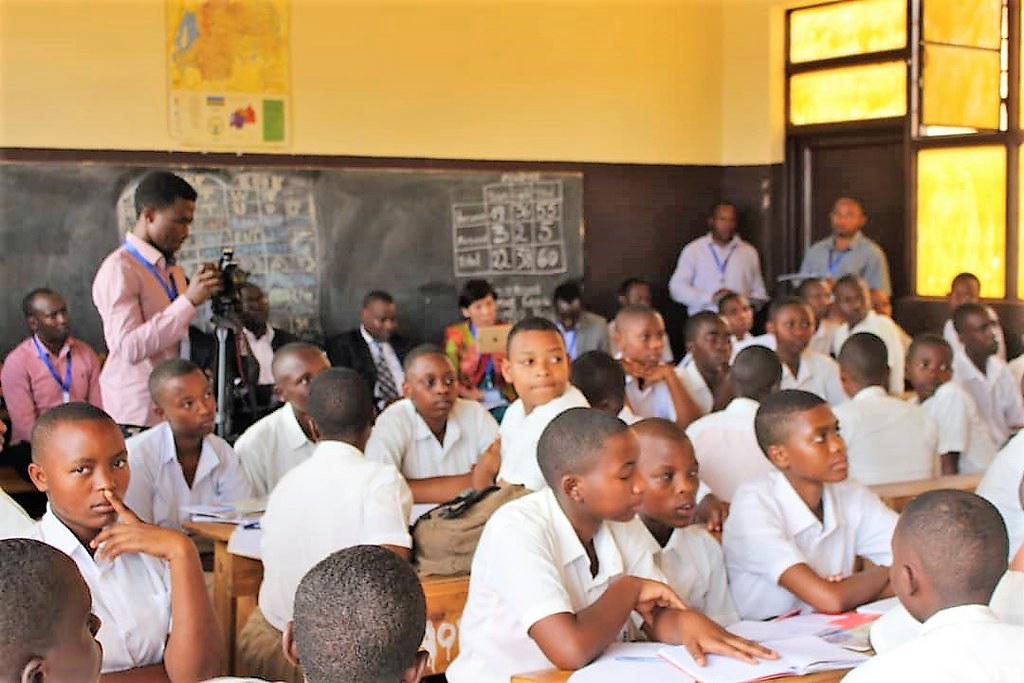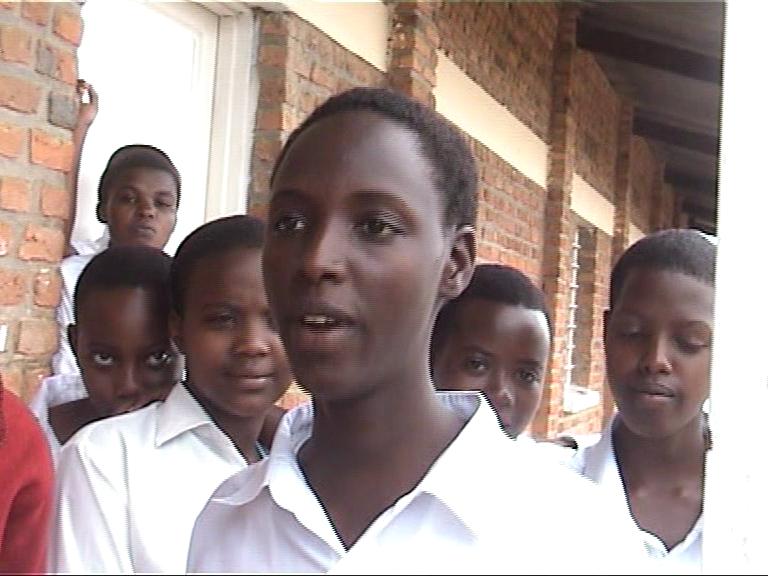By Giramata Ange livie, Irakoze Belyse, Mutoni ariane, Uwase Salima
In Rwanda’s countryside, technology is gradually becoming a bridge to a brighter future. One of the schools embracing this shift is GS Kabuye, a modest but determined institution nestled among banana plantations and rolling green hills.
Every morning, students walk long distances to reach the school. Most have never owned a smartphone, and only a few have ever touched a computer. Yet inside the school’s small ICT room, where old desktop computers hum softly, something transformative is happening: learning is evolving.
To understand this shift, we spoke to Uwamariya Anne Marie, a dedicated teacher who instructs Senior 1 and Senior 2 learners. She explained how digital tools have changed both teaching and learning.
“Technology truly helps teachers in preparing lessons. It makes our work faster and more organized. Students also benefit a lot; it helps them research, discover new information, and learn things that we sometimes cannot fully explain in class,” she said.
For Anne Marie, technology has become a classroom partner. She uses it to access updated content, design interactive lessons, and create clearer examples. Her students become more engaged whenever they have access to a computer; to them, it feels like a window to the wider world, one that allows them to explore beyond the boundaries of their textbooks.
However, despite these gains, she acknowledges that the challenges remain significant.
“The problem is that the technology equipment is still very few. We have more students than computers. Sometimes an entire class has to share just a few machines, and this slows down the learning process,” she said.
This problem is shared by many rural schools, where computers, projectors, and stable internet connections remain scarce. Some devices are outdated, and occasional power cuts disrupt lessons. Teachers eager to innovate often find themselves limited by the tools available.
Yet schools like GS Kabuye remain determined. Students stay curious. Teachers stay hopeful. And through government programs and partnerships, more devices, training opportunities, and ICT labs slowly begin to close the digital divide.

To capture the student perspective, we spoke to Chris Joel, a Senior 2 student who has experienced this transition firsthand. Sitting under the shade of a tree in the school courtyard, he described how technology has reshaped his learning experience.
“For us students, technology is exciting but still very new. Before, we used to depend only on textbooks and whatever the teacher wrote on the chalkboard. Now, using computers helps us understand things faster,” he said.

Chris said technology has opened his eyes to a more connected world. With even a few minutes on a computer, he can search for topics he did not fully understand in class, view pictures, watch demonstrations, and do practice exercises.
But he was also quick to mention the hardships.
“There are very few computers. Sometimes a whole class shares two or three machines. You wait for long, and when it’s finally your turn, the period is already ending,” he explained.
He described students crowding around a single screen, some discouraged by the limited time available to practice typing or internet searching. Slow internet and electricity interruptions add to the frustration.
“We really want to learn. Technology makes school interesting. It helps us understand better. But if we had more equipment, we would learn even more,” he said.
Despite these challenges, Chris remains hopeful that one day every student at GS Kabuye will have regular access to technology. His dream is to master computer skills and later help his community and teach the next generation of learners.
National Vision: Ensuring no student is left behind
Rwanda’s digital education drive aligns with the country’s ambition to build a knowledge-based society. Government leaders have repeatedly emphasized that equitable access to digital tools is essential for long-term national development.
Joseph Nsengimana, Minister of Education, recently underscored this commitment.
“Let us reaffirm our resolve to ensure that no Rwandan is left behind in the digital transformation journey. Let us continue to invest in innovative and inclusive solutions that empower our youth and communities with the knowledge and skills they need to thrive in the 21st century.” He said.
Similarly, Paula Ingabire, Minister of ICT and Innovation, highlighted the importance of integrating connectivity into the education sector during a January 2025 partnership announcement with Ignite Power.
“Universal internet access in education is crucial for realizing our vision of a knowledge-based society,” she said.
